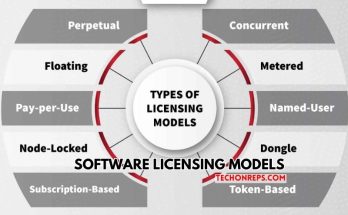Maximizing Your Potential: Role Identification/Scope of Practice Assignment
Role identification/scope of practice Assignment are crucial aspects of career development. Knowing your role within an organization and understanding the boundaries of your professional responsibilities can help you excel in your career and maximize your potential. In this blog post, we will explore the importance of role identification/scope of practice Assignment, and provide tips and examples to help you navigate these areas in your own career.

Defining Your Role
Identifying your strengths and weaknesses is an essential step in defining your role within your field. Take the time to reflect on your skills, experiences, and interests to determine where you excel and where you may need improvement. This self-awareness will help you identify the areas where you can make the greatest impact and contribute the most value.
Understanding your role within your organization is also crucial. This involves knowing what is expected of you, what tasks and responsibilities fall under your purview, and how you fit into the larger goals and objectives of the organization. By understanding your role, you can align your efforts with the overall mission of the organization and work towards common goals.
The Benefits of Role Identification
Knowing your role can have numerous benefits for your career development. Firstly, it allows you to focus your efforts on areas where you can make the greatest impact. By understanding your strengths and weaknesses, you can prioritize tasks that align with your skills and delegate or seek support for areas where you may need assistance.
Additionally, knowing your role helps you set realistic goals and expectations for yourself. When you have a clear understanding of what is expected of you, you can set achievable targets and measure your progress more effectively. This clarity also allows you to communicate your goals and expectations to others, ensuring that everyone is on the same page.
Examples of successful professionals who have identified and embraced their roles include Steve Jobs, who understood his role as a visionary leader at Apple, and Sheryl Sandberg, who recognized her role as a champion for women in the workplace. By embracing their roles and leveraging their strengths, these individuals were able to make significant contributions to their respective industries.
Understanding Scope of Practice
Scope of practice refers to the boundaries and limitations of what professionals can and cannot do within their field. It is important to understand your scope of practice as it ensures that you are providing safe and effective care or services to your clients or customers.
The definition of scope of practice can vary depending on the profession and industry. For example, in healthcare, scope of practice may refer to the specific tasks and procedures that a nurse or doctor is authorized to perform. In the legal profession, scope of practice may refer to the areas of law that a lawyer is qualified to practice in.
Understanding your scope of practice is crucial for professional development as it helps you stay within your area of expertise and avoid potential legal and ethical issues. It also ensures that you are providing the highest quality of care or service to your clients or customers.
The Importance of Staying Within Your Scope of Practice
Staying within your scope of practice is essential for maintaining safety and effectiveness in your work. When you operate within the boundaries of your expertise, you are more likely to provide accurate and reliable information or services to your clients or customers.
Stepping outside of your scope of practice can have serious consequences. It can lead to errors, misdiagnosis, or harm to clients or customers. It can also result in legal and ethical issues, such as malpractice lawsuits or professional misconduct charges.
Examples of the consequences of stepping outside of your scope of practice include a nurse administering medication without proper training, resulting in an adverse reaction in a patient, or a financial advisor providing legal advice without being qualified to do so, leading to a client facing legal consequences.
Expanding Your Scope of Practice
While it is important to stay within your scope of practice, there may be opportunities to expand your responsibilities and take on new challenges. However, it is crucial to do so in a responsible and informed manner.
Before taking on new responsibilities, it is important to seek proper training and education. This may involve obtaining additional certifications or qualifications, or undergoing specialized training programs. By investing in your professional development, you can ensure that you have the necessary skills and knowledge to take on new tasks and responsibilities.
It is also important to consult with colleagues or mentors who have experience in the areas you wish to expand into. They can provide guidance and support as you navigate new challenges and help you avoid potential pitfalls.
The Role of Education and Training
Education and training play a vital role in maximizing your potential and advancing your career. By continuously learning and acquiring new skills, you can stay up-to-date with the latest developments in your field and position yourself as a valuable asset to your organization.
There are numerous educational and training opportunities available for different professions. These may include formal degree programs, online courses, workshops, conferences, or mentorship programs. It is important to explore these options and find the ones that best suit your needs and goals.
By investing in your education and training, you can enhance your knowledge and skills, expand your scope of practice, and open up new opportunities for career advancement.
Collaborating with Others
Collaboration with colleagues is an essential aspect of career development. By working with a team, you can leverage the strengths of others, share knowledge and expertise, and achieve common goals more effectively.
Effective collaboration requires open communication, mutual respect, and a willingness to listen to others’ perspectives. It also involves recognizing and appreciating the unique contributions that each team member brings to the table.
By collaborating with others, you can gain new insights, broaden your horizons, and develop valuable relationships that can support your career growth.
Overcoming Challenges
Challenges are inevitable in any career, but how you respond to them can make all the difference in your professional development. It is important to develop strategies for dealing with obstacles and setbacks and to cultivate resilience and perseverance.
One strategy for overcoming challenges is to break them down into smaller, more manageable tasks. By tackling one step at a time, you can make progress and build momentum towards your goals.
It is also important to seek support from colleagues, mentors, or professional networks. They can provide guidance, advice, and encouragement as you navigate challenges and help you stay motivated and focused.
Conclusion:
Role identification and understanding scope of practice are essential aspects of career development. By knowing your strengths and weaknesses, understanding your role within your organization, and staying within your scope of practice, you can maximize your potential and achieve success in your career.
Education and training play a crucial role in professional development, as they provide opportunities to expand your knowledge and skills. Collaboration with others is also important, as it allows you to leverage the strengths of others and achieve common goals more effectively.
While challenges are inevitable, developing strategies for overcoming obstacles and cultivating resilience and perseverance can help you navigate setbacks and continue on the path towards success. By embracing self-awareness and collaboration with others, you can achieve your goals and make a meaningful impact in your chosen field.



